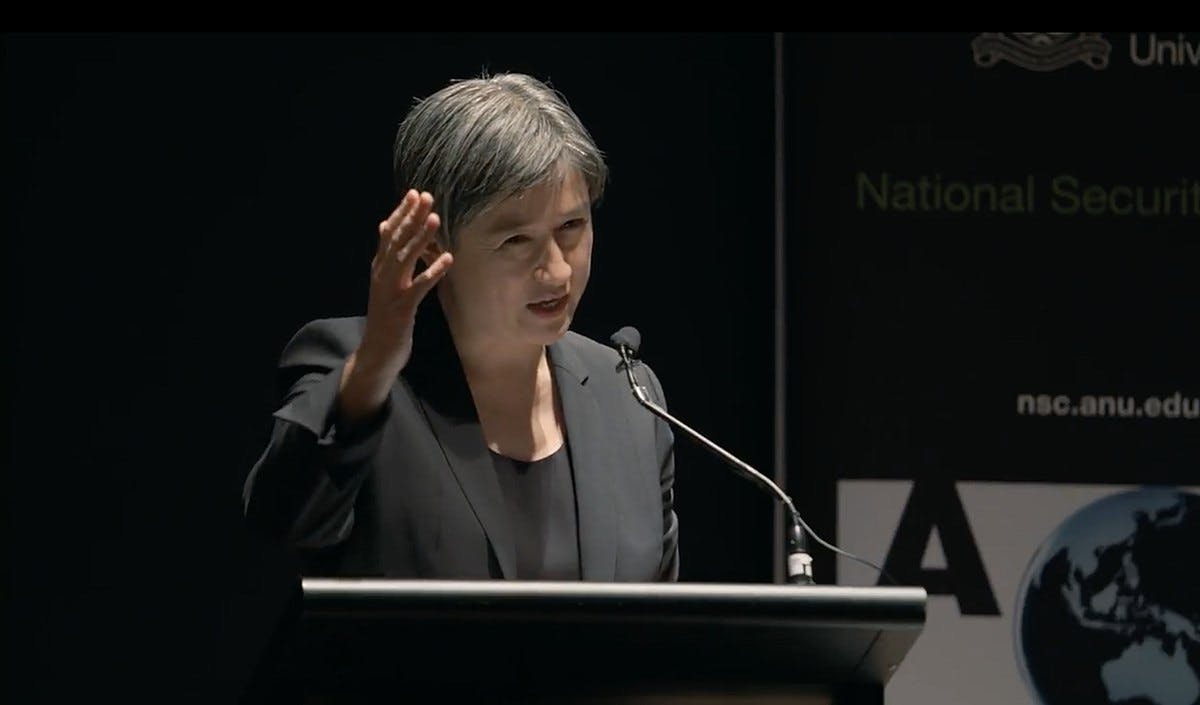Published: 25 November 2022
Last updated: 5 March 2024
DASHIEL LAWRENCE: When Covid lockdowns destroyed SHEREE RUBINSTEIN'S co-working spaces, she found a new way to support other businesswomen.
Few words have become more widely used in recent years – even overused – than "pivot". Cast your mind back to March 2020, when the world came to a grinding halt as government-mandated lockdowns sent us all inside and off the streets. Everyone from Jewish congregations to global brands like Airbnb had to dispense with their traditional model and accept new ways of doing business. Organisations and their leaders were either despairing or – pivoting. Usually, a combination of both.
Thirty-four-year-old entrepreneur Sheree Rubinstein was one such leader. Prior to the pandemic, the Mt Scopus alumna had been on a remarkable trajectory. One Roof, Australia’s first co-working space for women Rubinstein co-founded in Melbourne’s inner south, was proving hugely popular. It garnered hundreds of tenants renting desk space and assisted many more women to succeed in business.
At its peak the space saw well over 200,000 people in and out of its doors each year, providing events, professional development and more. The model was so successful there were plans to take One Roof global. By 2020, she had raised $1 million dollars from investors to take One Roof to the next, exciting stage.
Rubinstein’s One Roof was one among a wave of co-working spaces appearing across Australia.
“It was so exciting,” Rubenstein tells The Jewish Independent. “Co-working was this new thing – it was this the new way of business. We were building community and re-imagining the office space. It was fun, exciting, and it got so much PR.”
At the end of 2019, One Roof had outgrown its first office and was making a move to a new location that would feature a drop-in business lounge, event space, private office studios, hospitality offerings, childcare and nanny services.
The picture looked rosy. But in hindsight, Rubinstein admits, she also had doubts.
“Things change so much, and so quickly, nowadays. You have to be across all the macro trends. That ability to adapt wasn't necessary when my parents were in business."
One of the biggest players in the global co-working market, WeWork, crashed in spectacular fashion in 2019. At its height, WeWork was one of the most valuable start-ups in the world. Despite investors giving billions of dollars to the company, its plans to hit the stock market derailed and the company nearly collapsed.
“I was spending a lot of time and energy raising money to fit out the new premises. Co-working was – it is – so capital intensive.”
And the bigger One Roof became, the further away it took Rubinstein from the organisation’s purpose.
“It was tiring. I was dealing with internet issues, cleaning toilets and attending to other maintenance issues. When you’re operating a co-working space you’re effectively selling office space. And I never set out to do any of that.”
Her guiding passion was and remains supporting women to achieve their career ambitions.
“Women entrepreneurship is a great way to support women. If women have the right support, they can re-write the rules and re-write the systems that hold them back.”
A self-confessed "A-type" personality, she came to her calling through an early career in commercial law.
"As a young career-driven woman who knew I wanted to have kids one day and was always quietly confident but not incredibly outspoken, I always felt like the messaging I received from the business and corporate world was my ability to lead and succeed is not equivalent to my male counterparts, particularly those who possess the stereotypical characteristics of leadership"
“I really needed mentors and supports – other women that could show me another way. But I didn't get it from the industry.
“It wasn't until a friend asked me whether I identify as a feminist that I started a journey of uncovering what this meant. I found my voice and my passion. I realised that so many of my own fears, insecurities and self-doubts stemmed back to feeling like I was not taken seriously enough because I am a woman.”
The child of industrious small business owners, Rubinstein set out on her own entrepreneurial path to create a space for women like her. She, and her co-founder Gianna Wurzl, started with a test pop-up co-working space in a mansion hired on Airbnb. Nearly 500 people flocked in that first week.
They called it One Roof, to embody the notion that the organisation could “provide everything women need to succeed in their businesses and careers all under one roof.”
“I thought growing a community through a co-working space was everything I wanted to do, but the pandemic questioned my commitment [to the co-working model].
When One Roof’s business model virtually collapsed overnight during Covid lockdowns, Rubenstein needed to pivot – and fast. A One Roof board member gave her frank advice: “You have to go online.”
Online memberships were created, and a face-to-face community was flipped online.
Nearly three years on from those stunning and anxious days in March and April 2020, and the world is slowly readjusting. Co-working spaces have re-opened their doors, in some instances with stronger demand as a result of new hybrid working models forcing corporates to rethink large office spaces.
One Roof never re-opened – at least as a brick-and-mortar operation.
“I am happy that I am not back there [operating as a co-working space]. There's still a place for co-working spaces, but increasingly they’ll be targeted to corporates.”
Instead, Rubinstein and her team have made the migration to online permanent.
“The new online space is a community and a hub of e-learning; it’s like a Netflix of professional development. We offer access to incredible content that is tailored to our members’ needs. We’re in the process of doing a rebrand, and we will have an app eventually.”
She’s emboldened by One Roof’s near-death experience.
“Things change so much, and so quickly nowadays. You have to be across all the macro trends. That ability to adapt wasn't necessary when my parents were in business.
“We had to rebuild and start everything again with One Roof. I think that's what makes the best entrepreneurs – persistence is key,” Rubinstein says
“The most successful founders never gave up.”
Sheree Rubinstein will appear online in conversation with The Jewish Independent’s Dashiel Lawrence at Breakfast with the Museum, Jewish Museum of Australia, Melbourne on Friday, December 2, at 8am. Registration is free.
Photo: Sheree Rubinstein (supplied)




